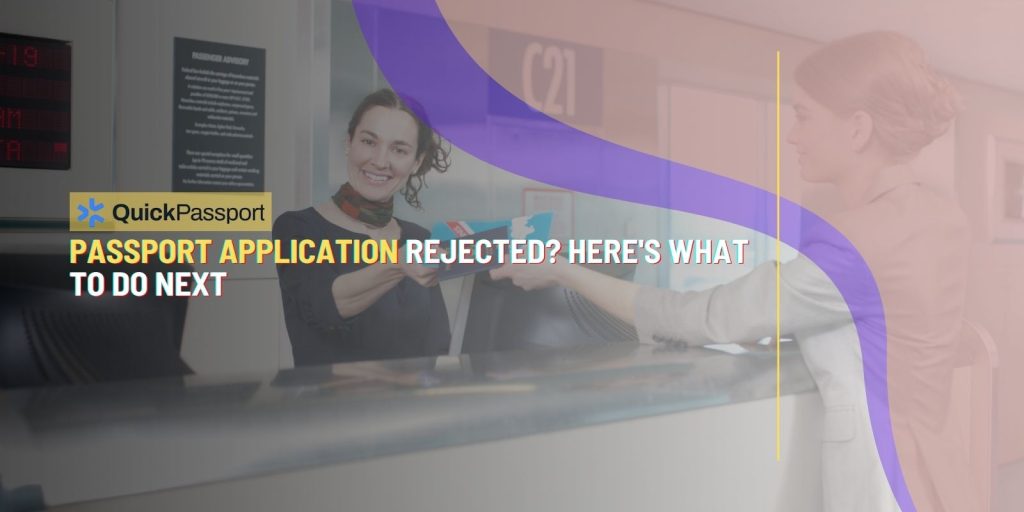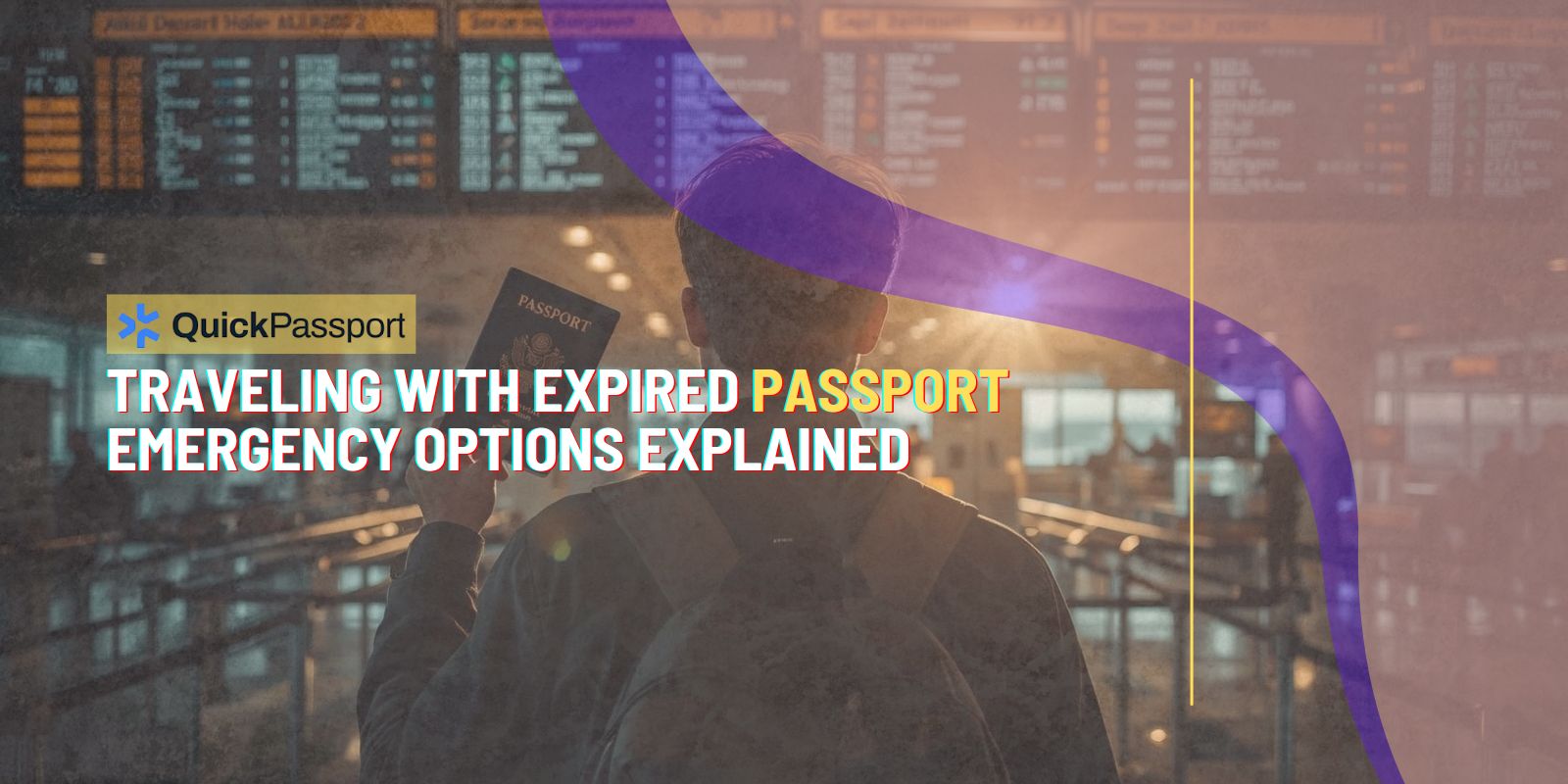Receiving a passport application rejection can feel devastating, especially when you have travel plans or urgent needs for international documentation. However, a rejected passport application is not the end of your journey toward obtaining this essential travel document. Understanding why your application was denied and knowing the precise steps to take for successful resubmission can transform this setback into a valuable learning experience that ultimately leads to passport approval.
The U.S. State Department processes millions of passport applications annually, and while the vast majority are approved, rejections do occur for specific, correctable reasons. Most rejection scenarios provide applicants with clear pathways for resolution, including detailed instructions for addressing deficiencies and resubmitting corrected applications within established timeframes.
Overview of Passport Application Rejection Recovery
Passport application rejections typically fall into predictable categories that can be systematically addressed through proper documentation, error correction, and procedural compliance. The State Department maintains structured processes for applicants to respond to rejection letters, correct identified deficiencies, and resubmit applications without starting the entire process from scratch.
This comprehensive guide covers every aspect of passport rejection recovery, from understanding common rejection reasons and interpreting official correspondence to implementing corrections and successfully resubmitting your application. You’ll discover the critical 90-day response window, learn about different types of rejections and their specific solutions, and understand when professional assistance becomes valuable for complex cases.
The recovery process involves careful analysis of rejection reasons, systematic correction of identified issues, and strategic resubmission that addresses all State Department concerns. Arlington residents benefit from QuickPassport Arlington’s expertise in navigating rejection scenarios, providing professional guidance that significantly improves success rates for corrected applications.
Key Takeaways for Passport Rejection Recovery:
- 90-Day Response Window: You typically have 90 days from the rejection letter date to correct issues and resubmit without paying new application fees or starting over completely
- Systematic Problem Identification: Rejection letters provide specific reasons that require targeted solutions, from document corrections to legal issue resolution
- Documentation Requirements: Corrected applications must include the original rejection letter and comprehensive evidence addressing each identified deficiency
- Professional Guidance Value: Complex rejections involving legal issues, citizenship questions, or multiple deficiencies benefit significantly from expert assistance
- Prevention Strategy: Understanding common rejection reasons helps avoid future application problems and ensures initial submissions meet all State Department requirements
Understanding Your Passport Rejection Letter

Analyzing the Official Rejection Correspondence
When the State Department rejects your passport application, you receive an official letter detailing the specific reasons for denial and providing instructions for resolution. The State Department’s response system ensures applicants understand exactly what went wrong and what steps are necessary for successful resubmission.
Rejection letters contain critical information including your Application Locator Number, specific deficiency descriptions, required corrective actions, and response deadlines. You must respond within 90 days of the letter date to maintain your application’s active status and avoid paying new fees for complete resubmission.
Understanding the language and requirements in rejection letters prevents misinterpretation that could lead to inadequate corrections or missed deadlines. QuickPassport Arlington’s expertise in interpreting official correspondence helps Arlington residents understand complex rejection scenarios and develop comprehensive correction strategies.
Common Rejection Categories and Their Implications
Passport rejections generally fall into several distinct categories, each requiring different correction approaches. Documentation deficiencies represent the most common rejection type, including missing supporting documents, inadequate proof of citizenship, or insufficient identity verification materials. These technical rejections are typically straightforward to correct through proper document submission.
Application errors constitute another major rejection category, encompassing incomplete forms, incorrect information entry, or missing signatures and dates. Photo rejections occur when submitted images fail to meet strict State Department photo requirements, including size specifications, composition standards, or technical quality issues.
Legal and financial rejections involve more complex issues such as outstanding child support debts exceeding $2,500, federal tax obligations, active arrest warrants, or other court-ordered travel restrictions. These situations require resolution of underlying legal matters before passport issuance can proceed.
Most Common Reasons for Passport Application Rejection
Documentation and Form Completion Issues
Incomplete or incorrect documentation represents the leading cause of passport application rejections. Missing required documents such as proof of citizenship, adequate identification, or supporting evidence for name changes frequently result in application holds. You must respond within 90 days of receiving a correction letter to maintain your application status and avoid restarting the entire process.
Form completion errors including blank fields, incorrect information, missing signatures, or improper fee calculations cause unnecessary delays and rejections. The State Department requires precise information entry that matches supporting documents exactly, including proper spelling, accurate dates, and consistent personal details throughout all application materials.
Supporting document inadequacies often involve submitting photocopies instead of required originals, providing expired identification, or using uncertified copies of birth certificates. Understanding specific document requirements for your application type prevents these common but easily avoidable rejection scenarios.
Passport Photo Rejections and Technical Standards
Passport photo rejections account for a significant percentage of application delays and denials. Bad photos are the number one reason why we put passport applications on hold. Common photo problems include incorrect sizing, poor composition, inadequate lighting, background issues, or failure to meet strict facial expression and positioning requirements.
Technical photo standards require precise adherence to size specifications (2×2 inches), proper head positioning (1 to 1⅜ inches from chin to top of head), neutral facial expressions, appropriate lighting, and plain white or off-white backgrounds without shadows or patterns. Digital photo submissions must meet additional technical requirements for resolution, file format, and image quality.
Professional photo services or State Department-approved photo tools help ensure compliance with all technical requirements, reducing the likelihood of photo-related rejections that can delay your application by weeks or months.
Legal and Financial Compliance Issues
Legal complications represent some of the most challenging rejection scenarios, often requiring resolution of underlying issues before passport applications can proceed. Outstanding child support debts exceeding $2,500 automatically trigger rejection through the federal Child Support Enforcement program, requiring full payment or approved payment arrangements before passport issuance.
Federal tax obligations, active arrest warrants, court-ordered travel restrictions, or probation conditions that limit travel can result in passport denials. The IRS passport certification program affects taxpayers with seriously delinquent tax debts, requiring resolution through payment arrangements or dispute resolution.
Criminal history involving certain convictions, pending charges, or ongoing investigations may impact passport eligibility depending on specific circumstances and jurisdictions involved. Professional legal guidance often becomes necessary for navigating complex legal rejection scenarios.
The 90-Day Correction Window What You Need to Know
Understanding Response Deadlines and Consequences
The 90-day response window represents a critical opportunity for correcting rejected passport applications without losing your place in the processing system or paying additional fees. Additional Information Needed: This update is available on the date we send you a letter and/or email. Follow the instructions in the letter and this page. You must respond within 90 days.
Missing the 90-day deadline results in complete application cancellation, requiring you to restart the entire process with new forms, documents, fees, and processing times. This deadline applies from the date of the rejection letter, not from when you receive or read the correspondence, making prompt attention essential for maintaining your application status.
The response window allows sufficient time for obtaining corrected documents, resolving legal issues, or gathering additional evidence required for successful resubmission. However, complex legal or financial issues may require immediate attention to ensure resolution within the available timeframe.
Strategic Planning for Effective Response
Successful correction within the 90-day window requires immediate assessment of rejection reasons and development of a comprehensive correction strategy. Begin by thoroughly reviewing the rejection letter to understand all required corrections, gathering necessary documents, and identifying any complex issues that might require professional assistance or extended resolution times.
Create a timeline that accounts for document acquisition delays, legal resolution processes, or other factors that might affect your ability to respond promptly. Some corrections, such as resolving child support obligations or tax issues, may require coordination with multiple agencies and extended processing times.
QuickPassport Arlington’s professional services help Arlington residents develop efficient correction strategies that maximize the available response time while ensuring comprehensive resolution of all identified issues.
Maintaining Application Status During Corrections
Your application remains active during the 90-day correction period, allowing you to address issues without losing your position in the processing queue. However, the correction window requires active response with proper documentation to maintain this status effectively.
Partial responses or incomplete corrections may not satisfy State Department requirements, potentially resulting in additional delays or ultimate rejection despite efforts to comply. Comprehensive correction that addresses all identified issues in a single, well-documented response provides the best pathway for successful application approval.
Professional monitoring services help ensure your correction response meets all requirements and maintains your application’s active status throughout the resolution process.
Step-by-Step Recovery Process

Immediate Response Actions After Receiving Rejection
Upon receiving a passport rejection letter, immediately review the entire document to understand all rejection reasons and required corrective actions. Contact information for customer service appears in rejection letters, providing direct access to specialists who can clarify complex requirements or answer specific questions about your situation.
Document all rejection reasons and create a comprehensive correction checklist that addresses each identified deficiency. Some rejections involve multiple issues requiring different types of evidence or documentation, making systematic tracking essential for complete resolution.
Begin gathering required documents and evidence immediately to ensure adequate time for proper preparation and submission within the 90-day response window. Complex cases may benefit from professional consultation to ensure comprehensive correction strategy development.
Systematic Correction Implementation
Address each rejection reason systematically with appropriate documentation and evidence. Document corrections require obtaining proper originals, certified copies, or additional supporting materials as specified in the rejection letter. Form corrections involve completing missing information, correcting errors, or providing additional clarification as requested.
Photo corrections require new images that meet all State Department technical requirements, often benefiting from professional photography services or approved digital photo tools that guarantee compliance. Include all required supporting materials with your corrected submission to avoid additional delays or secondary rejections.
Legal or financial issue corrections may require coordination with courts, child support agencies, tax authorities, or other governmental entities to resolve underlying problems before passport processing can continue.
Professional Documentation and Resubmission
Prepare your correction response with careful attention to organization, completeness, and professional presentation. Include the original rejection letter with your response to help processing staff match your corrections to the pending application efficiently.
Organize supporting documents logically with clear identification of how each item addresses specific rejection reasons mentioned in the official correspondence. Professional services help ensure your correction response meets all requirements while presenting information clearly for efficient review.
Submit your correction response through the method specified in the rejection letter, maintaining copies of all materials for your records and potential follow-up requirements.
Addressing Specific Types of Rejections
Document-Related Rejections and Solutions
Document rejections typically involve missing materials, inadequate originals, or insufficient supporting evidence for identity verification or citizenship proof. Common solutions include obtaining certified birth certificate copies from appropriate vital records offices, providing original or certified identification documents, or submitting additional evidence for name changes or other personal information updates.
Marriage certificates for name changes must be certified copies from the issuing jurisdiction, while divorce decrees require court certification for legal name change recognition. Adoption documents, court orders, or other legal materials must meet specific certification standards outlined in State Department guidance materials.
Professional document review services help ensure all materials meet certification requirements and adequately support your application before resubmission, reducing the likelihood of additional delays or rejections.
Photo and Technical Rejections
Photo rejections require new images that comply with strict technical specifications including size, composition, lighting, background, and facial expression requirements. Professional photography services familiar with passport requirements provide the most reliable path to compliant images.
Digital photo submissions must meet additional technical requirements for file format, resolution, and image quality that may require specialized software or professional processing. Home photography can work with proper equipment and technique, but professional services eliminate technical risks.
Review all photo requirements carefully before retaking images to ensure comprehensive compliance with current State Department standards and avoid repeated photo rejections.
Legal and Financial Issue Resolution
Legal rejections require resolution of underlying issues through appropriate legal channels before passport processing can continue. Child support obligations require payment or approved payment arrangements coordinated with state enforcement agencies that can provide documentation for State Department review.
Tax-related rejections involve coordination with the IRS to resolve seriously delinquent tax debts through payment, installment agreements, or dispute resolution processes. The IRS provides specific procedures for passport-related tax issue resolution including expedited processing for urgent travel needs.
Legal consultation may be necessary for complex criminal history issues, court orders, or other legal complications that affect passport eligibility and require specialized resolution strategies.
When to Seek Professional Help
Complex Rejection Scenarios Requiring Expertise
Certain rejection scenarios benefit significantly from professional assistance due to their complexity, legal implications, or technical requirements. Multiple rejection reasons, citizenship questions requiring Form DS-5513 completion, or identity verification issues involving Form DS-5520 often require expert guidance for successful resolution.
Legal rejections involving child support, tax obligations, criminal history, or court orders may require coordination between passport specialists, legal professionals, and relevant government agencies to ensure proper resolution within required timeframes.
Name change rejections, especially those involving multiple name changes, foreign documents, or complex family situations, benefit from professional review to ensure comprehensive documentation that satisfies State Department requirements.
QuickPassport Arlington Professional Services
QuickPassport Arlington specializes in passport rejection recovery, providing expert analysis of rejection letters, comprehensive correction strategy development, and professional documentation preparation that significantly improves approval rates for corrected applications.
The local Arlington expertise includes familiarity with Virginia document requirements, regional processing patterns, and efficient coordination with acceptance facilities throughout the Arlington area. Professional services also include ongoing monitoring of correction submissions and proactive communication about processing progress.
Comprehensive service delivery encompasses everything from initial rejection analysis through successful passport delivery, ensuring Arlington residents receive expert support throughout the entire recovery process while maintaining optimal timelines for travel needs.
Cost-Benefit Analysis of Professional Services
Professional assistance often proves cost-effective when considering the time, complexity, and potential for additional rejections associated with self-correction attempts. Expert services reduce the likelihood of incomplete corrections that could result in missed deadlines, additional fees, or extended processing delays.
Complex legal or technical rejections may require specialized knowledge that individual applicants cannot reasonably be expected to possess, making professional guidance essential for successful resolution. The expertise provided often prevents costly mistakes that could significantly extend the passport acquisition timeline.
Professional monitoring and communication services provide valuable peace of mind during the correction process while ensuring optimal outcomes for all application types and rejection scenarios.
Preventing Future Rejections

Application Best Practices and Quality Control
Preventing future rejections requires careful attention to application completion, document preparation, and technical requirements compliance. Review all form instructions thoroughly before beginning application completion, and double-check all information entry for accuracy and completeness before submission.
Obtain professional passport photos that guarantee compliance with current State Department requirements, and ensure all supporting documents meet certification and originality standards specified in application instructions. Professional application review services can identify potential issues before submission.
Maintain organized records of all application materials, supporting documents, and correspondence for easy reference during processing and potential future applications or renewals.
Professional Preparation Services
QuickPassport Arlington’s comprehensive preparation services include expert form completion, document review, photo verification, and quality control measures that significantly reduce rejection risks for initial applications.
Professional services also include education about common rejection scenarios, guidance on proper documentation standards, and ongoing support throughout the application process to ensure optimal outcomes for Arlington residents.
Comprehensive preparation often proves more cost-effective than correction services while providing superior outcomes and reduced stress throughout the passport acquisition process.
Common Questions About Passport Application Rejections
How long do I have to respond to a passport rejection letter?
You typically have 90 days from the date on the rejection letter to correct the issues and resubmit your application. You must respond within 90 days to maintain your application’s active status and avoid paying new fees. Missing this deadline results in complete application cancellation, requiring you to restart the entire process with new forms, documents, and fees. Begin working on corrections immediately upon receiving the rejection letter to ensure adequate time for proper resolution.
Do I have to pay the application fee again if my passport is rejected?
No, you do not have to pay again if you respond within the 90-day correction period with proper documentation addressing all rejection reasons. However, if you miss the 90-day deadline, your application is canceled completely and you must submit a new application with full payment. You also cannot receive a refund for rejected applications, making timely correction response essential for avoiding additional fees.
Can I appeal a passport rejection decision?
While there is no formal appeal process for standard passport rejections, you can contact the National Passport Information Center at 1-877-487-2778 if you disagree with the rejection reasons or need clarification about requirements. Most rejections provide clear correction pathways rather than requiring appeals. For complex legal issues, you may need to work with relevant agencies (such as child support enforcement or the IRS) to resolve underlying problems before passport processing can continue.
What should I do if my rejection involves child support debt?
If your passport was rejected due to child support debt exceeding $2,500, you must resolve the obligation through your state’s child support enforcement agency before passport processing can continue. Options include paying the full amount owed or establishing an approved payment plan. Contact the Child Support Services Division at (202) 442-9900 for guidance on resolving certification issues that affect passport eligibility.
How can I fix a rejected passport photo?
Submit a new photo that meets all State Department requirements within the 90-day response period. Include a copy of the rejection letter with your new photo so processing staff can match it to your pending application. Don’t write anything on the front or back of the photo, and ensure the new image complies with current size, composition, lighting, and background requirements. Professional photography services often provide the most reliable path to compliant photos.
Can I expedite my corrected passport application?
Yes, you can request expedited processing for your corrected application by paying the additional $60 expedited service fee when you resubmit your corrections. However, expedited processing only begins after the State Department receives and accepts your correction response. The 90-day response period is separate from processing times, so prompt correction submission is essential for meeting urgent travel needs.
What happens if I need to travel before my correction is processed?
If you have urgent travel needs within 14 days, contact the National Passport Information Center immediately to discuss emergency passport options. Passport agencies may provide limited appointment availability for documented travel emergencies, but this requires proof of urgent travel needs and may involve additional fees. Emergency services depend on application status and specific circumstances of your travel requirements.
How do I know if my correction was received and accepted?
The State Department sends confirmation when they receive your correction response, and your application status should update to reflect the renewed processing. You can check your application status online using your Application Locator Number, or contact customer service if you don’t receive confirmation within a reasonable timeframe after submission. Professional monitoring services can track correction responses and provide updates about processing progress.
Can QuickPassport Arlington help with rejected applications?
Yes, QuickPassport Arlington specializes in passport rejection recovery and provides expert analysis of rejection letters, comprehensive correction strategy development, and professional documentation preparation. Their services include ongoing monitoring of corrected applications and coordination with processing facilities to ensure optimal outcomes. Professional assistance often proves invaluable for complex rejections involving multiple issues or legal complications.
Will a passport rejection affect future applications?
A single passport rejection will not negatively affect future applications as long as you properly address the rejection reasons and maintain good standing with passport requirements. However, repeated rejections for the same issues or failure to resolve underlying legal problems could impact future applications. Proper correction and professional preparation help ensure successful outcomes for both current and future passport needs.
Moving Forward After Passport Rejection
Passport application rejection represents a temporary setback rather than a permanent barrier to obtaining your essential travel documentation. Understanding the specific reasons for rejection, implementing systematic corrections within the required timeframe, and ensuring comprehensive resolution of all identified issues provides a clear pathway to successful passport approval.
The 90-day correction window offers adequate time for addressing most rejection scenarios when approached systematically with proper planning and execution. Whether dealing with simple documentation errors or complex legal issues, professional guidance can significantly improve your chances of successful correction while ensuring efficient use of the available response time.
QuickPassport Arlington’s expertise in rejection recovery helps Arlington residents navigate even complex rejection scenarios with confidence, providing the professional support necessary for optimal outcomes. Contact QuickPassport Arlington today to discuss your specific rejection situation and discover how professional correction services can transform your passport rejection into a successful approval that meets your travel timeline requirements.






